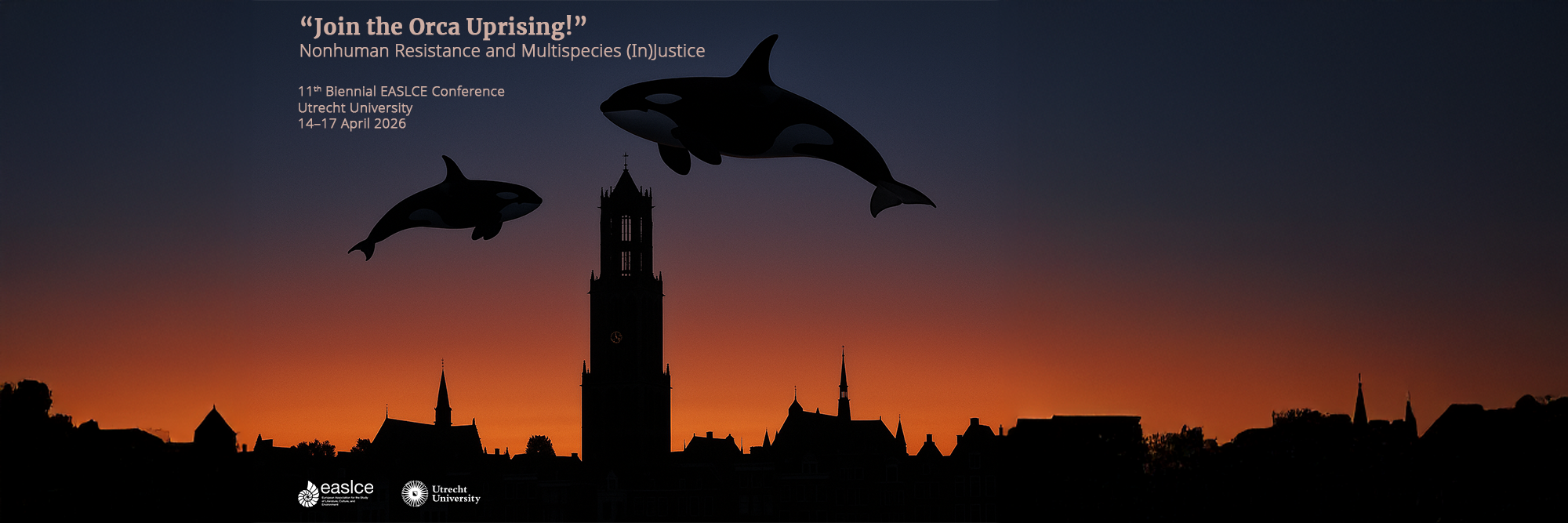“Join the Orca Uprising!”
Nonhuman Resistance and Multispecies (In)Justice
11th Biennial EASLCE Conference
Utrecht University
14–17 April 2026
The 11th edition of the biennial conference of the European Association for the Study of Literature, Culture, and Environment (EASLCE) will take place at Utrecht University from 14 to 17 April, 2026.
Dedicated to the theme of “Nonhuman Resistance and Multispecies (In)Justice”, the conference will explore questions of resistance and revolution, coexistence and conviviality among and between humans and nonhumans in all their cultural, political, historical, and aesthetic dimensions. An explicit ambition of the conference is to further the critical dialogue and to foster connection and solidarity between ecocriticism and animal studies under the umbrella of the environmental humanities.
This is the first time the conference is held in the Netherlands, a country defined as much by its tulips and “Golden Age” landscapes as by its fraught relation to both the land and the sea, characterized by intensive agriculture, land development, dwindling biodiversity, and the threat of rising sea levels – in short, a place where the prospect of the “revenge of Gaia” carries a particular resonance.
Keynote Speakers
- Prof. Greg Garrard (University of British Columbia, Canada)
- Prof. Kate Rigby (MESH, University of Cologne, Germany)
- Dr. Eva Meijer (University of Amsterdam, Netherlands)
This conference is supported by the Network for Environmental Humanities, Critical Pathways, the Institute for Cultural Inquiry (ICON), and the Netherlands Research School for Literary Studies (OSL), with additional support from the ERC project “Ecologies of Violence” and the ETAG project “Meanings of Endangered Species in Culture”.

